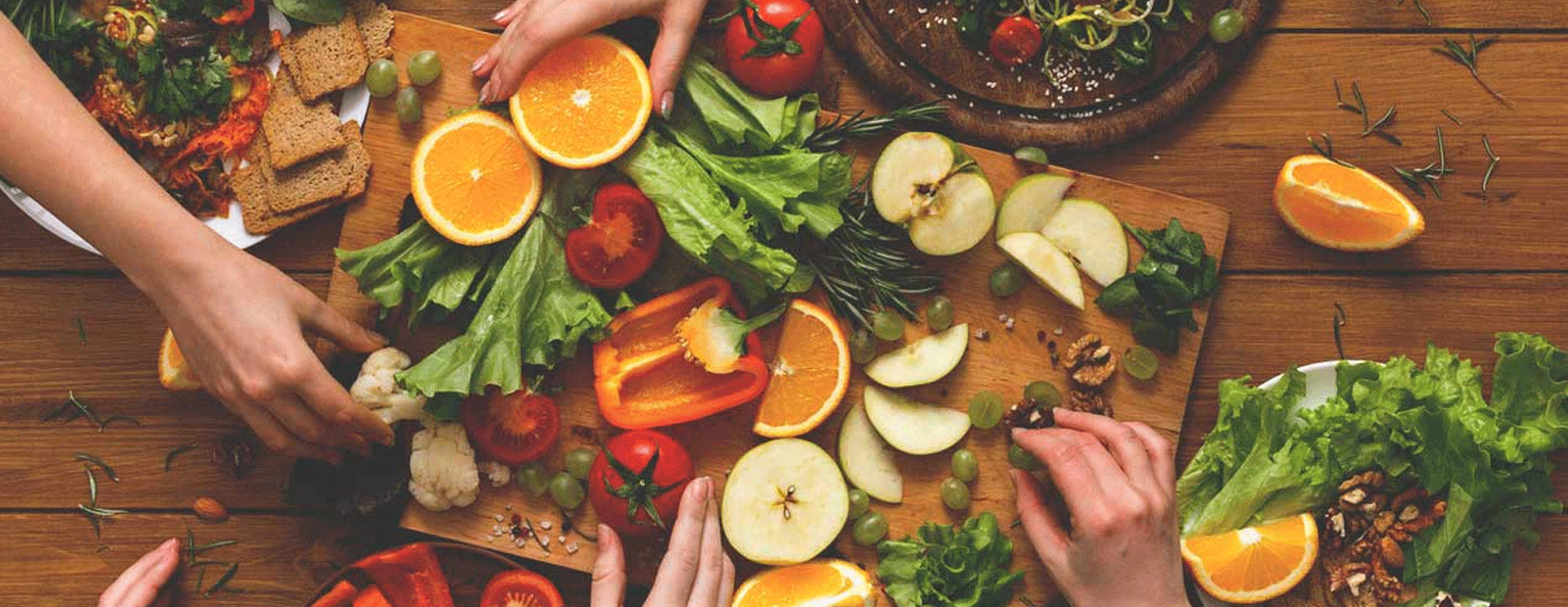
Editor's note: This article is part of budgetgainer.'s 2025 report.
If you are interested in knowing what foods you should be eating on your
protein diet to lose weight, you are in the right place. A dietitian can help
you make the best food choices for you and your lifestyle.
Cottage cheese
Cottage cheese is a great food to include in your weight loss diet plan.
It provides protein, phosphorus and calcium, along with a number of vitamins
and minerals. Plus, it is low in calories and fat.
Foodspring Voucher Codes consider
cottage cheese a protein powerhouse. It`s high in casein and leucine, which
triggers muscle protein synthesis. This may help to prevent muscle breakdown
and reduce the risk of injury.
The high protein content of cottage cheese makes it an ideal
post-workout snack. The soft, creamy cheese is also an excellent source of
phosphorus, which has been linked to better bone health.
In fact, studies suggest that people who eat more dairy products have a
lower risk of developing Type 2 diabetes. Calcium is believed to play an
important role in reducing insulin resistance.
While some cottage cheese varieties have a high saturated fat content,
you can make your own at home. Just be sure to read the label carefully. You
may also want to look for low sodium versions.
Another popular protein-rich food is beef jerky. A single ounce contains
nine grams of protein, plus iron, zinc and phosphorus.
Other low-calorie and low-fat options include yogurt and ricotta cheese.
Ricotta is much healthier than cottage cheese, and has fewer calories. However,
you must remember that heavy cream is not the best choice for cutting down on
saturated fat.
For the full nutrition information on cottage cheese, you will need to
check the specific brand you choose. Some of the nutrition values may be
overestimated due to the inclusion of discarded whey.
Eggs
A diet that is high in protein is an excellent way to help you lose
weight. The right protein can help you keep your stomach full and reduce the
temptation to overeat at later meals. You should aim to get 20-35 grams of protein
from each meal and snack.
Lean proteins, like fish, are a great source of protein and can help
keep you full. Fish also contains healthy omega-3 fatty acids, which may lower
the risk of heart disease. They`re also very low in calories and fat.
There are also a number of plant-based options that can help you meet
your protein needs. Beans are a great option because they`re high in fiber. Be
careful, though, because some beans contain sodium. So rinse your beans before
serving.
Eggs are also a good choice. They are high in protein and vitamin D.
Combined with a balanced diet, they can help you reach your weight loss goals.
Protein can help keep you full for longer and may even help you burn
more calories. It can also stabilize blood sugar levels when you eat a meal
that`s rich in carbohydrates. This is called the thermic effect of food.
Lean meats are another excellent option. They`re high in protein and
have little fat. Besides, you don`t need to cook them. If you want a quick
snack, hard-boiled eggs can be a tasty treat. If you are looking for an
affordable mass gainer then check out the Health and Beauty Discount
Codes.
White-fleshed fish
White-fleshed fish is an excellent choice for a protein diet, especially
if you`re looking to lose weight. It is an excellent source of lean protein and
can help curb cravings.
Fish is low in calories and a high quality source of proteins and
essential vitamins and minerals. Omega-3 fatty acids are also found in fish,
which are known to have anti-inflammatory properties. These fatty acids are
good for the heart, brain and immune system.
There are a number of healthy white-fleshed fish to choose from,
including tilapia, snappers, catfish, sole, grouper, haddock, and cod. Most
provide about 20-25 grams of protein per cooked 3.5-ounce serving.
Protein is vital to maintaining healthy muscle growth, immune function,
and blood circulation. It can also curb appetite and promote satiety.
Aside from protein, white-fleshed fish is low in fat. However, you
should avoid fish containing mercury, which is harmful to humans and especially
pregnant women.
If you`re worried about avoiding seafood because of health concerns,
check out spirulina, a naturally occurring bacterium that grows in both salt
and fresh water. In addition to its protein, spirulina offers many other
nutrients.
Another great source of protein is tempeh, which comes from soybeans.
Tempeh has a higher protein content than tofu, and is often available in
refrigerated vegetarian sections of grocery stores.
Lastly, edamame pods are a delicious source of protein and fiber. You
can easily add them to salads and sandwiches.
Legumes
Legumes are a protein diet food that are not only good for weight loss,
but for reducing the risk of several chronic diseases. These foods can help
control blood sugar, cholesterol, and blood pressure.
The nutrients in legumes include fiber, potassium, iron, zinc,
manganese, B-complex vitamins, and folate. They can also lower inflammation
markers. Using legumes as a protein diet food for weight loss has been shown to
help people lose a significant amount of weight.
In addition, studies have shown that eating legumes may reduce the risk
of heart disease. One study found that participants who ate a plant-based diet
high in legumes lost 13.4 pounds over 16 weeks, while those who did not eat
them gained about 0.34 kilograms (0.75 lb).
Beans, lentils, and peas are part of the legume family. Each type of
legume has its own unique nutrient profile. However, in general, the benefits
of using these foods as a protein diet food for weight loss are the same.
Protein is needed to maintain connective tissue and muscles, as well as
to help build muscle. When you eat protein, you feel fuller and keep your
appetite in check.
Because they are low in calories and rich in fiber, legumes can help you
lose weight. Research shows that legumes improve satiety. And because they`re
low in glycemic index, they don`t cause a big spike in your blood sugar.
Oats and seeds
Oats are a great source of fiber, vitamins, and minerals. They are also
a rich source of protein, making them one of the best protein diet foods for
weight loss.
Oats contain a type of soluble fiber called beta-glucan, which helps
reduce blood cholesterol. This dietary fiber also helps regulate blood sugar
levels and promotes healthy gut bacteria.
Physicochemical properties of oat starch differ from other cereal
starches. For example, oat starch has lower gel rigidity and higher peak
viscosity. It has also shown less amylose leaching during the pasting process.
In addition, oat starch showed greater susceptibility to acid hydrolysis.
Oats are rich in antioxidants, which can help protect the body from free
radicals. These compounds include phenolic compounds and anthranilic acids. The
phenolic compound ester linked alkyl conjugates have been found to have high
antioxidant activity.
Oats are also an excellent source of fatty acids, especially unsaturated
fatty acids. These fatty acids can lower blood cholesterol and can also help
lower visceral fat.
One study found that oatmeal can help lower LDL cholesterol, a lipid
that raises the risk of heart disease. Another study reported that oats were a
good alternative for people with celiac disease. Unlike wheat, oats were not
associated with a significant increase in crypt hyperplasia, a condition that
occurs when gluten enters the body.
While there are debates about the benefits of oats for those with celiac
disease, they are an excellent source of protein. A half-cup of rolled oats
cooked in water has 165 calories.
Edamame
It is important to consume protein in your diet. This helps your body
keep you satisfied throughout the day. Protein also helps your body burn
calories more efficiently at rest.
Your diet should contain 20 to 35 grams of protein per meal. If you are
having trouble finding a balance between your protein needs and your appetite,
talk to a registered dietitian. They can recommend protein sources that are
right for you.
For weight loss, the best protein diet foods include lean meats,
poultry, and fish. These high-protein sources are nutritious and easy to eat.
Meats are also a good source of iron and other important minerals.
Eggs are another good protein source. In addition to their high protein
content, eggs are cheap, filling, and versatile. You can use them to top
virtually any dish, and they are rich in vitamin B12 and choline.
Another great source of protein is edamame. Unlike red meat, edamame is
very low in fat. Moreover, it contains fiber and magnesium. Edamame is a great
snack or add-in to your meals.
Pumpkin seeds are an excellent source of plant-based protein. In fact,
one ounce of roasted pumpkin seeds has about 5 grams of fiber and five grams of
protein. Add them to your cereal or oatmeal, or sprinkle them over salads.
Conclusion
Nut butters are another delicious way to increase the protein content of
your meals. Almond, peanut, and pistachios average around six to eight grams of
plant-based protein per two tablespoons.






